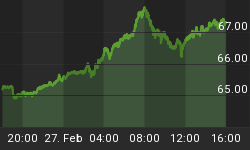Secretary of State John Kerry says the use of chemical weapons in Syria is "a moral obscenity."
With that clue (and many others), note that Obama prepares wary US public for war with Syria.
The White House has begun to prepare a wary US public for military action in Syria, with a flurry of well-publicised meetings of the administration's national security team, backed by a statement by secretary of state, John Kerry, calling the regime's use of chemical weapons "a moral obscenity".
Mr Kerry said on Monday President Bashar al-Assad's forces' responsibility for the use of chemical weapons in an attack which left hundreds dead last week was "undeniable", cementing a sharp about-turn in Washington's response to the issue.
Mr Obama said last year the use of chemical weapons would cross a "red line" in a conflict which the US has stayed out of, apart from promising to funnel weapons to some anti-Assad forces. Subsequently, however, when faced with allegations that chemical weapons had been used, administration officials had suggested they could not be conclusively traced back to Mr Assad's military.
The US is now moving quickly, and together with its Nato allies, could launch air strikes as early as Thursday or Friday this week, said individuals familiar with internal administration deliberations.
Chemical Weapons Questions
Q: Were chemical weapons used in Syria?
A: Highly likely
Q: By Assad, the rebels, or both?
A: Good question (and no one knows the answer for sure)
Q: Does it matter?
A: Apparently not. The US is headed for war anyway.
We Know Where They Are
Reflect back on the inane war in Iraq. Recall Donald Rumsfeld's statement regarding Weapons of Mass Destruction: "we know where they are."
We didn't know then. Do we know now?
Does it matter? Apparently not.
Iraq War Quotes
Please consider a few Iraq War Quotes.
11/15/1999, Dick Cheney, CEO of Halliburton (later, Vice President)
"Oil remains fundamentally a government business. While many regions of the world offer great oil opportunities, the Middle East with two thirds of the world's oil and the lowest cost, is still where the prize ultimately lies, even though companies are anxious for greater access there, progress continues to be slow." (at the London Institute of Petroleum)
10/11/2000, George W. Bush, Candidate for President
"I don't think our troops ought to be used for what's called nation building."
10/29/2001, Michael Leeden, American Enterprise Institute
"Just wage a total war against these tyrants; I think we will do very well and our children will sing great songs about us years from now."
02/13/2002, Kenneth Adelman, a member of the Pentagon's Defense Policy Board
"Liberating Iraq would be a cakewalk."
09/18/2002, Donald Rumsfeld, Secretary of Defense (before Congress)
"We do know that the Iraqi regime has chemical and biological weapons. His regime has amassed large, clandestine stockpiles of chemical weapons -- including VX, sarin, cyclosarin and mustard gas. ... His regime has amassed large, clandestine stockpiles of biological weapons -- including anthrax and botulism toxin, and possibly smallpox." (presentation to Congress)
10/7/2002, George W. Bush, President
"The Iraqi regime ... possesses and produces chemical and biological weapons. It is seeking nuclear weapons. We know that the regime has produced thousands of tons of chemical agents, including mustard gas, sarin nerve gas, VX nerve gas."
Curiously, every statement except the first one by Dick Cheney was a blatant lie or blatant stupidity (take your pick).
Pentagon Had Plan in 2001 to Attack Seven Countries in Five Years, Including Syria
Want proof?
Fair enough. I would too.
Please consider this 2007 article Gen. Wesley Clark Says Pentagon Had Plan in 2001 to Attack Seven Countries in Five Years.
Better yet, please play the video: General Wesley Clark: Wars Were Planned - Seven Countries In Five Years (Syria Included)
15 Signs
Via ZeroHedge here are 15 Signs That Obama Has Already Made The Decision To Go To War With Syria
What Do US Citizens Want?
I am glad you asked.
As Syria war escalates, Americans cool to U.S. intervention.
Americans strongly oppose U.S. intervention in Syria's civil war and believe Washington should stay out of the conflict even if reports that Syria's government used deadly chemicals to attack civilians are confirmed, a Reuters/Ipsos poll says.
About 60 percent of Americans surveyed said the United States should not intervene in Syria's civil war, while just 9 percent thought President Barack Obama should act.
The Reuters/Ipsos poll, taken August 19-23, found that 25 percent of Americans would support U.S. intervention if Syrian President Bashar al-Assad's forces used chemicals to attack civilians, while 46 percent would oppose it. That represented a decline in backing for U.S. action since August 13, when Reuters/Ipsos tracking polls found that 30.2 percent of Americans supported intervention in Syria if chemicals had been used, while 41.6 percent did not.
Taken together, the polls suggest that so far, the growing crisis in Syria, and the emotionally wrenching pictures from an alleged chemical attack in a Damascus suburb this week, may actually be hardening many Americans' resolve not to get involved in another conflict in the Middle East.
"A Moral Obscenity"
Those looking for "A Moral Obscenity" now have it.
I am willing to define the term as follows: A pre-ordained war, on inconclusive evidence, with only 9% support (24% even IF chemicals were used by Assad).















